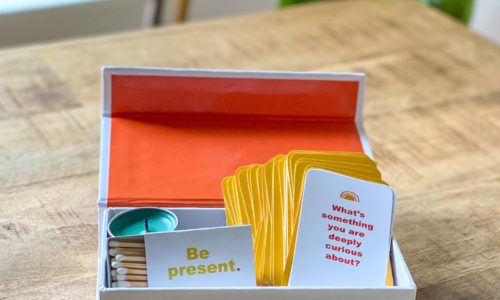Over the past twelve years, I’ve been inspired by many heroic parents in my midst. The list of strong character traits I witness in their lives is too long to post here.
But of all of the traits parents carry, there are two that yield the strongest impact in equipping children to become thriving, independent, kind and purposeful humans. They are:
- patience with, and
- empathy for our children.
To be clear, I’m not talking about teaching patience and empathy to our children, although that will naturally follow.
I’m talking about embodying these traits in relation to our children. When a child experiences these traits in their parents, they become more trusting of themselves, more compassionate with others and better able to overcome struggle.
The good news is that patience and empathy are like muscles, the more you use them, the stronger they get.
Here are some tips to workout your patience and empathy muscles on behalf of your beloved children:
Practicing patience with your children
- Know yourself. Be able to calm yourself down when you feel your patience is being tested. Breathe deeply. Take a break. Being quiet is better than screaming when patience is zapped.
- Slow down. Rushing causes a child to feel pressure and anxiety.
- Be present. “Stop, look and listen” when you are with your child. Be with your children in fully attentive, open, slow-paced mode. Imagine the luxury or just soaking up their presence.
- Keep a gratitude journal. This is proven to help you delay gratification which is the same as practicing patience.
- Begin remembering how hard learning and growing are. You’ll soon see patience bloom from this fertile ground which is also where empathy is rooted.
Practicing empathy for your children
- Continually get to know your child. It’s assumed parents know their children well. But they are growing and changing each day. Ask good questions. Listen fully.
- Spend purposeful time together with family dinners, family meetings, storytelling. Include conversations with moral dilemmas in them – be open to discover something new about your children rather than telling them the “right answers” to these dilemmas.
- Talk about feelings often. Together with your children, learn to name and claim them with no shame.
- Practice conflict resolution together. So much is gained when you stop pushing problems under the rug. Talk about them. Get to a point of forgiveness and let it go. Move on.
- As with patience, pass along your skills of self-calming (deep breathing, stopping and counting.)
- Use language that communicates empathy. Here are some sample statements:
“That must have really hurt your feelings.”
“You’re in a tough spot.”
“I can tell you feel really good about your decision.”
“I hear you saying you feel ______. Is that right?”
“I love you.”
“I’m with you.”
“I’m in your corner.”
I give credit and gratitude again to Jake Thompson from Heroes Academy, an Acton Academy in Boise, Idaho for bringing these traits to the forefront of the conversation about how parents can best support their children on their learning journeys. And I thank each parent I’ve met along the way. I learn so much from you.


